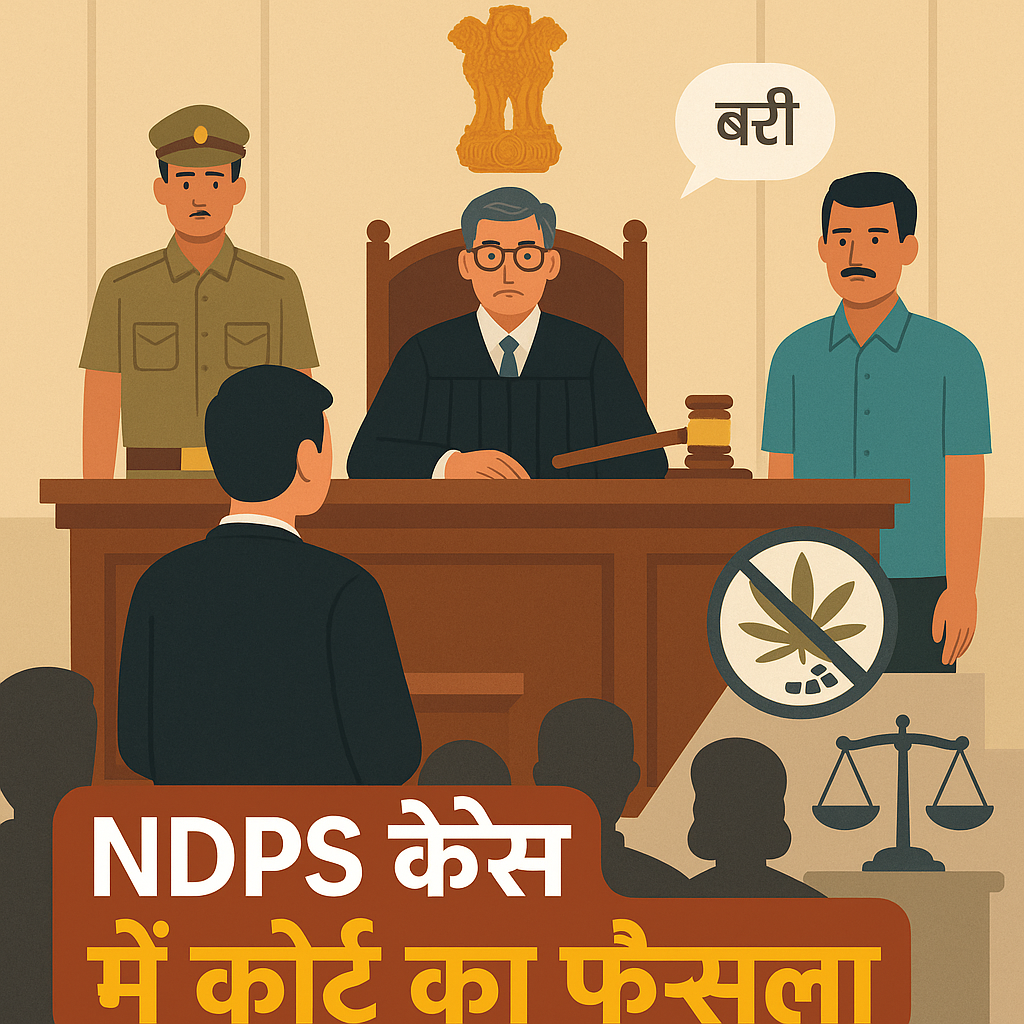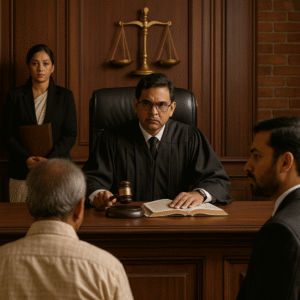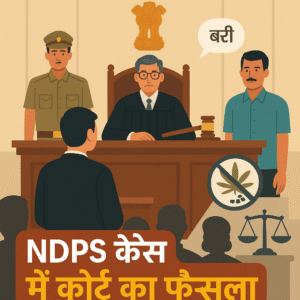Simplified Explanation of the Judgment
In a significant judgment, the Patna High Court overturned the conviction of a man previously found guilty under the Narcotic Drugs and Psychotropic Substances (NDPS) Act. The appellant had been sentenced to 10 years of rigorous imprisonment and fined ₹1 lakh for allegedly being found in possession of 250 grams of Charas. The case arose from a 2011 incident in Muzaffarpur district, where police claimed to have intercepted three men on a motorcycle and recovered Charas from each of them during vehicle checking.
The trial court had convicted the appellant, Barun Kumar Verma @ Prince Kumar Verma, based on police testimonies and the alleged seizure of the contraband. However, upon appeal, the High Court identified several procedural deficiencies and contradictions that cast serious doubt on the integrity of the investigation and the reliability of the evidence.
Key concerns highlighted by the High Court included:
- The same officer who led the raid was also assigned the investigation, compromising impartiality.
- While police claimed to have prepared and sealed sample packets of the seized Charas at the spot, none of these samples were exhibited in court.
- The date of dispatch and receipt of samples by the Forensic Science Laboratory (FSL) appeared manipulated. The FSL report was dated before the Sessions Judge even authorized the dispatch.
- Crucially, the prosecution failed to prove that the accused was informed of his legal right under Section 50 of the NDPS Act to be searched in the presence of a Magistrate or Gazetted Officer.
The Court relied on several landmark Supreme Court decisions, particularly Vijaysinh Chandubha Jadeja v. State of Gujarat, which mandates strict compliance with Section 50 of the NDPS Act. Failure to inform the accused of this right renders the search and recovery process illegal.
The High Court also noted that the prosecution had not produced any of the seized contraband in court nor did it adequately examine independent seizure witnesses to prove recovery. These failures, the Court held, amounted to a serious lapse, making the prosecution’s version unreliable.
Based on these findings, the High Court concluded that the trial court had erred in convicting the appellant. It set aside the conviction and directed the immediate release of the appellant from custody, provided he was not required in any other case.
Significance or Implication of the Judgment
This ruling serves as a strong reminder to law enforcement agencies about the need for strict adherence to procedural safeguards under the NDPS Act. The judgment reinforces the constitutional and statutory rights of individuals against arbitrary search and seizure.
It also highlights the judiciary’s responsibility to scrutinize evidence closely, especially in cases involving serious criminal penalties. The decision is a reaffirmation that procedural lapses and lack of transparency can nullify even seemingly strong cases under stringent laws like the NDPS Act.
For legal practitioners and the general public, this judgment demonstrates that courts remain vigilant protectors of due process and individual rights, even in cases involving serious offences.
Legal Issue(s) Decided and the Court’s Decision
- Issue: Was the accused properly informed of his right under Section 50 of the NDPS Act?
- Decision: No. Failure to inform the accused rendered the search and seizure invalid.
- Issue: Did procedural lapses compromise the prosecution’s case?
- Decision: Yes. Multiple lapses—including unclear FSL timelines, non-production of seized materials, and conflict of interest in investigation—vitiated the conviction.
- Issue: Should the conviction under Section 20(b)(ii)(B) NDPS Act be upheld?
- Decision: No. The High Court set aside the conviction and ordered the release of the appellant.
Judgments Referred by Parties
None specifically mentioned as referred by the parties.
Judgments Relied Upon or Cited by Court
- Vijaysinh Chandubha Jadeja v. State of Gujarat, (2011) 1 SCC 609
- State of Punjab v. Baldev Singh, (1999) 6 SCC 172
- Karnail Singh v. State of Haryana, (2009) 8 SCC 539
- Jitendra v. State of M.P., AIR 2003 SC 4236
- Noor Aga v. State of Punjab, 2008 AIR SCW 5964
- Vijay Jain v. State of M.P., (2013) 14 SCC 527
- Mohinder Singh v. State of Punjab, AIR 2018 SC 3798
- State of Rajasthan v. Sahi Ram, AIR 2019 SC 4723
Case Title
Barun Kumar Verma @ Prince Kumar Verma v. The State of Bihar
Case Number
CRIMINAL APPEAL (SJ) No.1085 of 2016
Citation(s)
2020 (1) PLJR 151
Coram and Names of Judges
Hon’ble Mr. Justice Aditya Kumar Trivedi
Names of Advocates and who they appeared for
- Mr. Ravi Ranjan, Advocate for the appellant
- Mr. Binod Bihari Singh, Additional Public Prosecutor for the State
Link to Judgment
https://patnahighcourt.gov.in/viewjudgment/MjQjMTA4NSMyMDE2IzEjTg==-4aXGwAHJGms=
If you found this explanation helpful and wish to stay informed about how legal developments may affect your rights in Bihar, you may consider following Samvida Law Associates for more updates.








